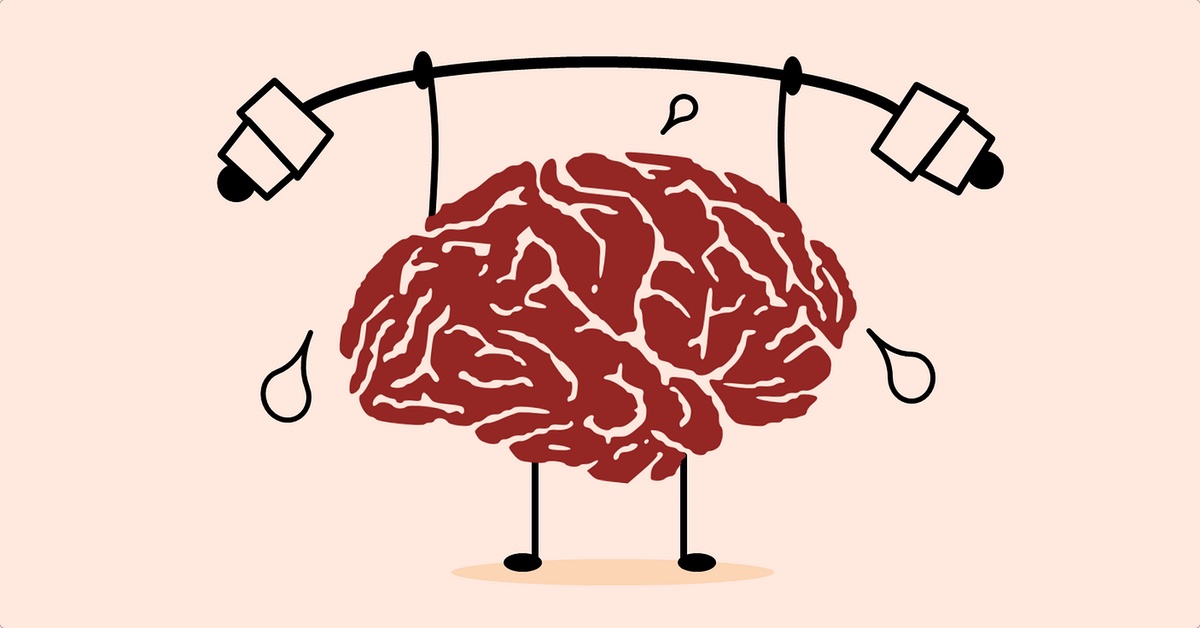“So, tell me,” says the singing coach with a smile. “How have you got on since our last session with the practise we set?”
*Cue montage*
Oliver: “I forgot to do the vocal exercises, but I sang my song a few times.”
Pippa: “I’ve been really busy this week so I haven’t had time to practise.”
Rani: “Oh, I didn’t know that I was supposed to practise anything.”
Kamal: “I did practise a few times, but my Dad said I sounded bad.”
Johnny: “I was about to practise when a brightly coloured laser beamed me into the quantum realm where I spent the rest of the week floating around wearing a pink lycra suit and crocs.”
Ad infinitum.
Motivating practise in students and helping them to understand it as integral to their craft is a tricky part of the trade – and one which has rendered me slightly wrinklier as a result. Let’s turn to the famous family of W’s (and an H) for some advice:
WHY should our clients practise?
- To Get Better: One common reason why most of us learn a skill is to get better at it. Singing is a motor skill, and it could be helpful for our students to understand that the process of motor learning is not instant and that scheduling practise time is the way to make better singing permanent.
There are three stages to motor learning: cognitive, associative and autonomous. An article in PLOS Biology’s scientific journal (named ‘Motor Learning Unfolds over Different Timescales in Distinct Neural Systems’) author Janelle Weaver explains that: “in the first stage, movements are slow, inconsistent, and inefficient, and large parts of the movement are controlled consciously. In the second stage, movements become more fluid, reliable, and efficient, and some parts of the movement are controlled automatically. And in the third stage, movements are accurate, consistent, and efficient, and movement is largely controlled automatically.” It is through the repetition of sensation via vocalises, for example, that we can arrive at this latter state, singing in a way which is ‘automatic’ by drawing on information now stored in the brain’s subconscious or ‘muscle memory’. By the same hand, inefficient habits can be committed to muscle memory too, so ensuring that we can replace them by practising better co-ordinations is important.
- Preparation: Practise is a preparation tool – a bit like peeling and dicing vegetables before cooking a stew; if our dinner guests were to chow down on a whole stringy parsnip they would probably be too nervous to come again (or push for a takeaway next time). Being prepared can help lay the foundations for a confident performance or audition, and assists in keeping anxiety at bay – something which we don’t need an extra helping of, thank-you very much.
WHO should be practising?
- Everyone: Regardless of whether they are professional or a hobbyist, every singer will benefit from practise. However, if Delilah aspires to perform professionally in a touring musical production her commitment to practise is arguably more crucial compared to that of Paul who took up singing after his local bowling club shut down. Despite that, if the singer wishes to see results, practise is not optional.
- Involving Parents: The people our clients are surrounded by can impact their choices and progression, and it is important that their support network can encourage them, create a positive environment to practise in, and provide constructive feedback if asked.
We may find it beneficial to chat to the parents or guardians of our younger singers so that we can work together as a collective to motivate the singer in order for them to progress their skill optimally. If the singer is younger than 8-years of age, I like to encourage a parent to sit in on the singing lesson. This way, I can involve the parent in such a way that they can play a part in positive practise at home.
WHERE should they practise?
- Environment: When I lived with my parents my vocal practise would suffer if I knew they were at home. Even if my Dad was nodding off in front of a game of golf, or if my Mum was busy arranging her shoe collection the mere thought of them hearing my ‘work in progress’ provoked tension, both mentally and physically. After all, practise is not a performance and, therefore, mistakes should be allowed. However, the potential unwanted audience can change that dynamic entirely.
Similarly, if our students aren’t able to practise because their brother can’t stand the sound of a tongue trill siren, or because their Mum works nights and can’t get to sleep with the racket of an octave arpeggio hum on repeat then this may well contribute to their lack of growth. We need to help our students find pockets of time to spend in an environment where practise is allowed to be just that – whether that be in a classroom in school break times, or in Grandma’s bathroom.
- Adaptability: Life gets busy sometimes; Tina might find herself working shifts at the supermarket between nappy changes, singing classes, auditions and rehearsals for the Christmas Pantomime where she’s Dance Captain. If our clients express a lack of time for concentrated practise we might need to suggest alternative tasks that maintain the intention but which can be done at the kettle or in the shower, for example.
WHAT should they practise?
- Explaining a Good Practise Routine: It could be that our clients don’t know how to get started or for how long they should practise for, so we may find it useful to discuss what a good routine entails.
The great thing is: practise doesn’t have to be boring and doesn’t require hours of attention. It can include a variation of the following, sandwiched between a warm-up and a cool down:
- Vocal Exercises: With the intention of focusing on specific technical areas in order to continue development.
- Implementing Exercises to Melody: Taking elements of the vocal exercise and attaching the sensations to repertoire.
- Research: Working on character development and, thus, bringing a performance to fruition.
- Theory: Sharpening musicality with sight-reading or music theory exercises.
- Singing: Having fun singing through repertoire which is both easy and poses a challenge, or which is dictated by an upcoming performance or audition.
In his youtube series ‘Voice Lessons to the World’, founder of New York Vocal Coaching Justin Stoney says: “I want your quality of practise to be much more important than your quantity. You could practise for shorter lengths: 20-30-minutes a day, 6-days a week and, if you’re doing quality practise, you’re going to get better really fast.”
- Mental Practise: Thoughts are powerful and it is said that imagining passages, phrases and movements can contribute to progress. Discussing learning Chopin’s mazurkas in his book ‘Musicophilia’, Oliver Sacks explains how simply imagining the music stimulated mental practise. He says: “even if it is involuntary and unconscious, going over passages mentally in this way is a crucial tool for all performers, and the imagination of playing can be almost as efficacious as the physical actuality.”

That could be a train journey better spent rather than scrolling through social media to learn what Darren had for his dinner.
- Creating Habits: In ‘Singing With Your Whole Self’Samuel H. Nelson and Elizabeth L. Blades quote: ““nil adseutudine maius”, nothing is stronger than habit… There is a good reason habits are so powerful: without them we could not function.” Ovid (43 to 17 or 18 CE)”
We all live with automatic habits: I have a cup of tea every morning, and I continue to bite my nails after approximately 27-years of doing so. A study into habit forming was conducted by Phillipa Lally and was published in 2009. The study found that it took between 18-254 days for 95% of the participants to arrive at the stage of habitual behaviour. Therefore, this indicates that the process of motor learning is quite individual but that reaching ‘automaticity’ is achievable if we are disciplined to stick with it. If our clients can be encouraged to adhere to an efficient practise routine, eventually, it may well become as habitual as brushing their teeth.
HOW else can we help motivate practise?
- Allow no practise to happen for a while: It seems counter-intuitive but if a singer isn’t committed to practise outside of lessons then it’s unlikely that significant development will be made. Even though this may cause frustration on both sides, the singer will experience first hand the lack of improvement which might be the very motivation they require to start committing to a practise routine.
- Interleaving: Interleaving is a process which is designed to commit more information to the long term memory by alternating areas of focus instead of concentrating on one thing at a time. This random exploration could increase the student’s engagement and therefore stimulate motivation.
- Create a Practise Timetable Together: Scheduling practise can be the start of good habit forming – a bit like finding time to exercise or remembering to floss (not the dance move).
- Accountability: Having the singer tell a friend or write down mini practise goals makes them accountable for their work.
- Use Positive Language: Instead of asking our students to ‘try’ or ‘see if you can’, language like ‘work through,’ ‘go over’ or simply ‘practise this’ is more direct and, potentially, more motivating.
- Address the VARK: For example, if a singer is an audio learner we could get them to record their vocal tasks on a smart device where we can describe the exercise first. Alternatively, if the student prefers to write and read instruction, we could suggest journalling, getting them to write down their practise at the end of each session themselves.
- Incentives: Some teachers may see this as a bribery tactic, but it can be a real boost for some – especially the younger singers. Incentives could include collecting points, stickers, or sweet treats.
- Playbacks: Presenting the singer with their ‘before’ and after’ sounds could give the singer confirmation of progress and feed motivation.
- Refer back to Goals: Reminding the singer of what they are striving for can reinforce that motivation to practise.
- Enjoying the Journey: A method which we can take from CBT therapy is encouraging the singer to enjoy the journey of learning and experiencing the new sensations they are creating with their instrument instead of fixating on the end result.
Acceptance
In ‘The Diagnosis of Vocal Faults’, James C. McKinney states: “If you know what is causing a bad sound, you nearly always can correct it, provided the student is giving you his full cooperation and really wants to make the change.”
Sometimes, a singer won’t demonstrate commitment or offer us their full cooperation and there could be many reasons why: teenage dramas, family problems or anxiety, for example. Other times, it could simply be a negative work ethic – however, we can’t make assumptions. Some teachers fear that it will reflect badly on them, and it can be hard to separate our own high standards and expectations from those our clients hold. If we have worked through many options and the singer still doesn’t wish to cooperate, it doesn’t make us bad teachers. Some may continue to work with that singer, whilst others make the decision to part ways and refer them on, and that choice is likely very individual and business dependent. There’s that old saying: “You can lead a horse to water, but you can’t make him drink.”
If you have any questions or comments, or if would like to share your approaches to motivating practise in your students you can find me and the BAST trainers in the BAST Facebook group.




